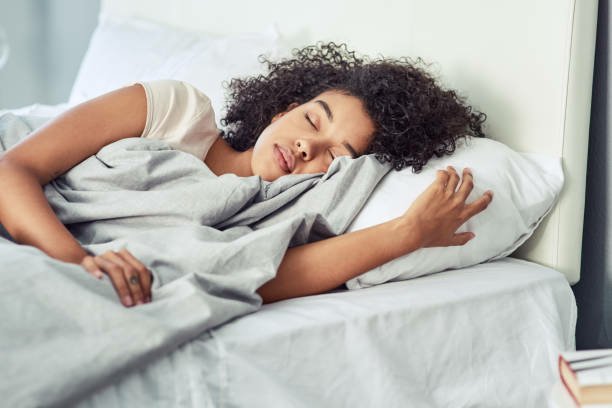You’ve probably heard the old adage that laughter is the best medicine, and it’s true that a good laugh offers plenty of physical and mental health benefits. It can help you manage your stress and, as Dr Nerina Ramlakhan, a neurophysiologist and sleep expert tells us, “studies show that laughing can boost your immune system by increasing levels of immune cells,” too.
One of the other areas in which laughter can help you out may come as a surprise, though: it’s sleep. And as it turns out, a lot of us could use a bit of help with our sleep at the moment. In a survey conducted by King’s College London, almost two-thirds (63%) of all respondents reported that their sleep has been worse in recent months as a result of stress caused by (you guessed it) the coronavirus crisis.
“But how can laughter help?” I hear you ask. Well, Stephanie Romiszewski is a consultant physiologist and director of the Sleepyhead Clinic, and she explains that it comes down to the fact that “feeling content and balanced is helpful for sleep.”

Laughter, she says, “is like a release,” which “decreases stress hormones and relaxes your muscles.” And not only that, it also “triggers the release of the feel-good hormones oxytocin and serotonin,” says Dr Ramlakhan. “Serotonin enhances our wellbeing,” she explains, while “oxytocin is the love and trust hormone,” and both will help settle your body and mind before bed.
So, by having a good laugh before bed at, say, a favourite TV show or good banter in the group chat, you help these physiological processes along, and this will get you closer to being “sufficiently wound down and ready for bed.” This can really up your chances of having a “good quality, uninterrupted sleep.”
Clearly, then “feeling joy and laughing can definitely be a good thing” in the hours before you go to sleep, says Stephanie. As Dr Ramlakhan goes on to explain“, especially in these challenging times, it is important that we allow ourselves moments of joy, mirth and happiness, to counterbalance the anxiety, fear and uncertainty” which cause disrupted sleep.
However, Stephanie wants to make it clear that if you have a habitual sleep problem – defined as one that has been “plaguing you for longer than three months” – then “you need to seek appropriate, evidence-based treatment.”
One of the go-to options for people struggling with their sleep is “cognitive behavioural therapy for insomnia, or CBTI for short,” which is targeted and “not to be confused with other types of CBT.” As a result, you should aim to view laughter “as more of a preventative measure to make sure sleep problems are less likely to occur, rather than a cure for sleep problems.”
This article was originally written on Stylist


























